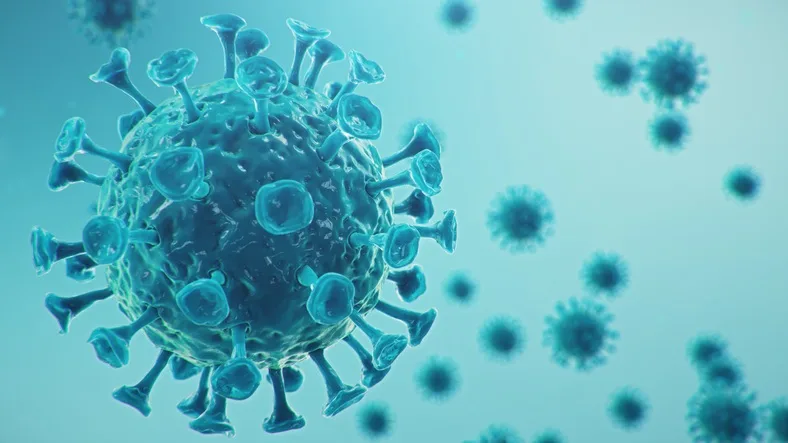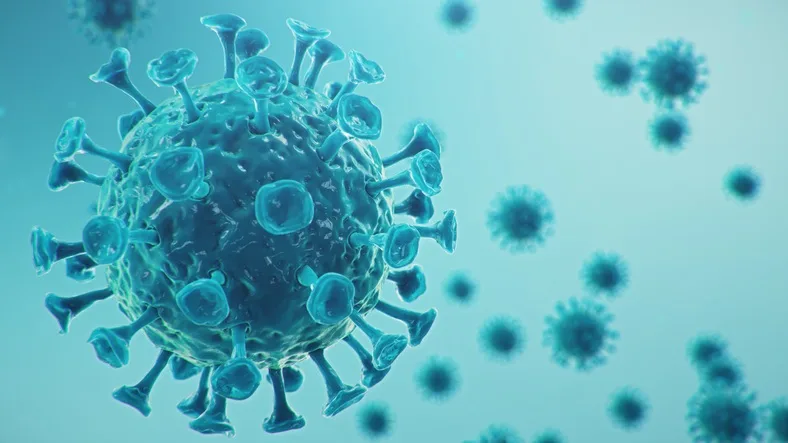
How can you reduce the risk of contracting COVID-19? We asked the experts
There are a few steps you can take to stay safe and healthy this fall and winter.
We've heard it countless times: This is a year like no other. And now, as the weather gets colder, some countries like the UK are heading back into national lockdowns to slow the spread of coronavirus.
To make matters worse, flu season is coming. While influenza can strike at any time, it's most common in the northern hemisphere in the fall, with cases typically beginning to increase in October, according to the U.S. Center for Disease Control (CDC).
One of the best lines of defense is the flu shot -- and that's especially important during a pandemic. When it comes to avoiding COVID-19, there are a few steps individuals can take to stay safe.
We spoke with Dr. Sumon Chakrabarti, an infectious disease expert at Trillium Health Partners, and Dr. Keith Warriner, a microbial expert and professor in the Department of Food Science at the University of Guelph, about COVID-19.
They provided some insight into nature of the virus and shared tips on how to reduce the risk of contracting COVID-19 as we head into the cooler months.

File photo: Getty Images.
HOW LONG DOES CORONAVIRUS LAST IN THE AIR?
Dr. Chakrabarti: This all depends on the conditions of where you are and the ventilation in the room. In general, the virus is in heavier droplets that fall to the ground within seconds of talking, coughing, or sneezing. This is what happens the majority of the time, and these types of droplets are what usually infect people, and they tend to happen when in close contact.
Some viral particles can hang around in aerosols in the air, but this does not mean they can infect you.
The one exception may be if you're in a relatively small room with poor ventilation and you've there for a long time with people singing or breathing hard from exercising.
The small amount of virus floating around in the stale air can accumulate over time, to the point of being able to infect people.
However, like I already suggested, this happens rarely, and, with good ventilation -- even opening a window -- the problem is avoided.
Dr. Warriner: There have been a number of research papers published that were mainly based on computer simulations. When we refer to coronavirus lasting in the air, it depends on the type of circulation in the area.
It has been proposed that the virus can remain suspended for 3 to 4 hours, but it's a bit more complicated than that.
For example, if the air is being recirculated, then the virus can remain in the air for 8 hours. If air disinfection systems are operating, such as HEPA and upper-level UV, the virus presence in the air is relatively short.
The key point is that suspension in the air is one aspect, and survival is another. With regards to the latter, high relative humidity, temperature, and presence of UV negatively affect virus survival.
VIDEO: HOW RISKY IS SURFACE TRANSMISSION?
HOW MANY DAYS AFTER INFECTION IS A PERSION CONTAGIOUS WITH COVID-19? HOW LONG IS A PERSON TYPICALLY CONTAGIOUS FOR?
Dr. Chakrabarti: In general, if we consider Day 1 the first day of COVID symptoms, the person was contagious for about two days before that, and up to approximately the 7th or 8th day.
The peak of contagion is two days before the onset of symptoms and about Day 3-5 of symptoms.
By the time Day 9 rolls around, you're no longer contagious, which is why we now do isolation for ten days. The exception is if you have a severely compromised immune system, like someone who is on chemotherapy or immunosuppressive medication, or if you are severely ill to the point of needing to be in the hospital on high amounts of oxygen.
In a well-ventilated outdoor area, how much can mask-wearing reduce the risk of catching the virus if practiced in combination with social distancing?
Dr. Warriner: The largest risk of acquiring the virus is when you are directly in front of someone or within an enclosed space. Masks give a degree of protection, but it depends on the type of mask.
For example, the N95 masks and P100 respirators are the most effective, but they are restricted to use by front line workers. Surgical and cloth masks can provide 30-50 per cent protection, so they're not as effective as people would think.
The distancing is suggested as 6 feet [or 2 metres], although this is not a hard line.
Essentially if you are close to someone and speaking or singing loudly, this is a higher risk compared to speaking at a normal volume and not being head-on.
It is suggested you look away from people when speaking. Masks and distancing is important indoors but not as critical outside - this was illustrated by gatherings that occurred in the summer.
VIDEO: SIMPLE SOCIAL DISTANCING VIDEO GOES VIRAL
WHAT ARE SOME THINGS PEOPLE SHOULD AVOID DOING IN THE FALL AND WINTER?
Dr. Chakrabarti: Avoid being indoors for prolonged periods with people outside your household. That is the biggest thing we can do to help reduce spread. When you look at the risk of acquisition of infection across the country, the vast majority of transmission is happening in these settings.
Dr. Warriner: As we move into the fall we naturally come inside, so one of the key things is to go back to your social bubble to reduce exposure.
Second, avoid stress and take Vitamin D, which has been linked to protection against COVID-19.
Lastly, try to avoid suffering from pandemic fatigue. Maintain the routine of wearing masks, washing hands, and practicing physical distancing.
Other precautions include avoiding is unnecessary travel ... and avoiding enclosed spaces where people congregate. Certain enclosed spaces may have effective air disinfection systems, but it is hard to tell which have them versus those that don't. Precautions should be taken to avoid spreading the virus to susceptible populations such as the elderly.
VIDEO: EXPERTS DISCUSS THE IMPACT OF THE PANDEMIC ON MENTAL HEALTH
DO YOU HAVE ANY OTHER ADVICE?
Dr. Chakrabarti: We've heard a lot of advice on how to keep safe and how to avoid catching the virus, but little on how to just live your life.
Social contact is important and even though you can't do it right now like normally, we will be there again at some point soon. Maximize the time you have with your household and make sure to take time to reach out to your friends and family virtually to maintain the connection. As all-encompassing COVID is for us right now, things will improve, and there is a light at the end of the tunnel.
Dr. Warriner: The best advice is to think about how to protect yourself, and by doing so, you protect others. This essentially means having as many lines of defense as possible -- specifically, eye protection, masks, practicing physical distancing, using air disinfection, proper ventilation, the COVID tracker app and hand-washing.
Answers were slightly edited for grammar and flow.






